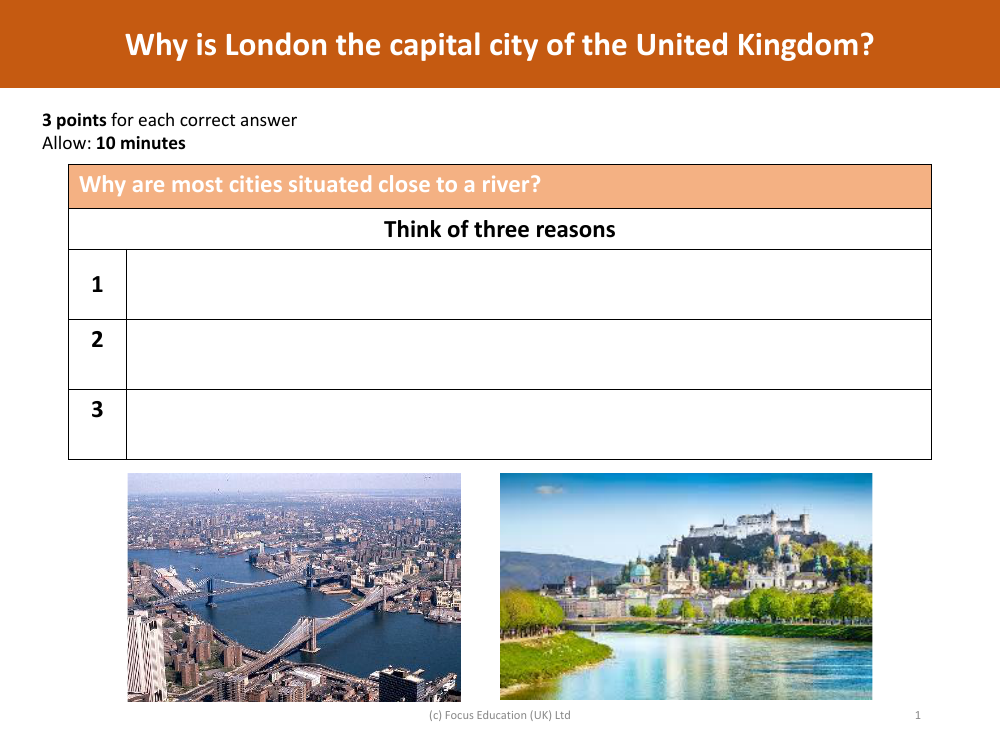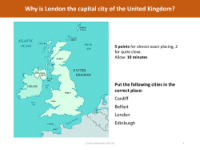Three reasons - Why cities are situated close to rivers

Geography Resource Description
Many cities around the world are situated close to rivers for several historical and practical reasons. Firstly, rivers have been crucial for transportation and trade. Before the advent of modern vehicles, waterways were the easiest routes for moving goods and people. Cities by rivers could engage in trade both domestically and internationally, leading to economic growth and development. Secondly, rivers provide a reliable source of fresh water which is essential for drinking, agriculture, and industry. Access to clean water is vital for sustaining large populations and for the functioning of various sectors within a city. Lastly, rivers often offer fertile land along their banks due to the deposition of nutrient-rich silt during floods. This fertility makes the surrounding land ideal for agriculture, which could support a growing population and contribute to a city's sustenance.
London, the capital city of the United Kingdom, owes its status to a combination of historical, geographical, and political factors. Situated on the River Thames, London's location was strategically chosen for defence and trade. The river provided a natural barrier against invasion and facilitated commerce and communication with the rest of the world. Over time, London became a hub of political power, hosting significant institutions such as the monarchy, the Parliament, and later, the financial district. These factors, along with London's ability to adapt and grow through different historical periods, cemented its role as the capital city of the United Kingdom.












